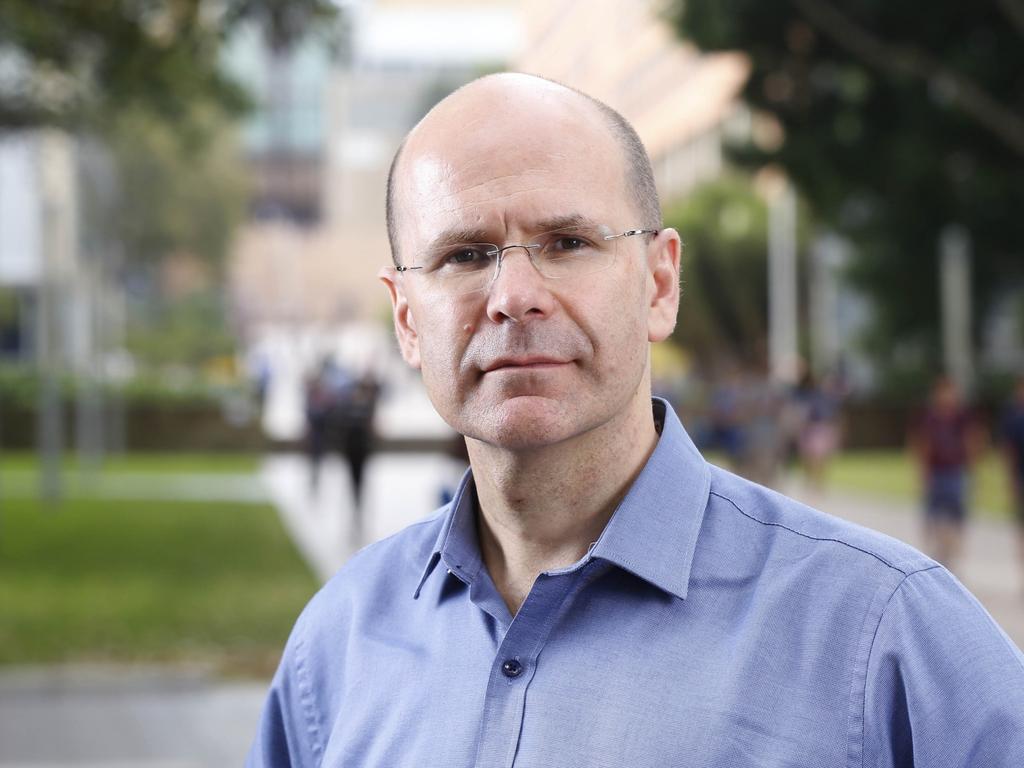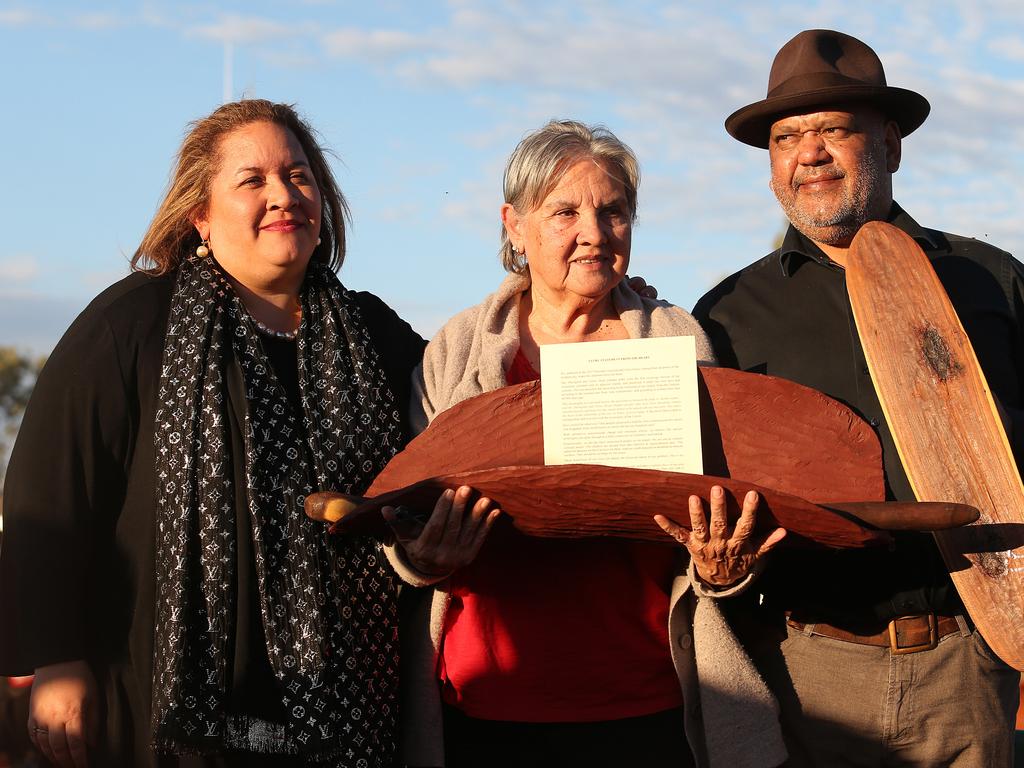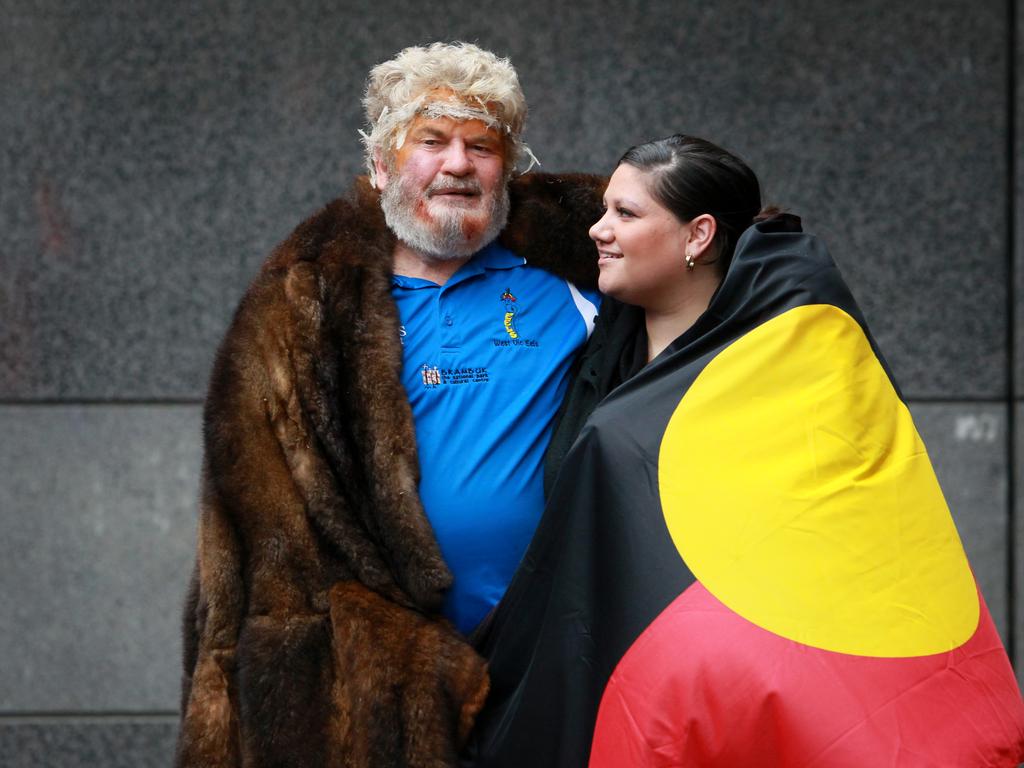Indigenous voice to parliament inquiry submissions are more petition than sound legal analysis


For the crib note version of what has gone wrong with universities, read the submissions from the University of Sydney law school and Adelaide Law School. Each is a one-pager saying they are allies of the voice, describing it as legally sound and signed by a gaggle of academics.
These are petitions, not submissions.
This is groupthink meets sandstone arrogance: legal academics with nothing of substance to say, offering no legal analysis. It’s apparently enough that they say Yes. Seriously, what is the point of these law schools?
Let’s look at what more serious-minded people put to the inquiry.
The Solicitor-General’s opinion contains critical flaws. He describes the proposed voice as an “enhancement” to our democracy. This is a political comment, not a legal one, leading some lawyers to wonder, tongue in cheek, whether this is a job application, not a legal opinion.
The SG is unconvincing, too, when he wrestles with straw men. For example, no one claims the voice has a legal right to veto decisions of parliament or the executive. The real concerns arise in the grey, messy, uncertain areas that the SG does not address.
The most obvious gap in the SG’s advice is that it’s premised on what happens once representations have been made. He doesn’t consider what must happen first – whether the many arms and bodies and bureaucracies that make up the executive in this country will need to notify the voice of relevant matters in advance of deciding them, and give it time and resources to analyse them.
After all, how can this new constitutionally mandated body exercise its constitutional right in practice to make representations unless it knows what to make representations about and has the time and resources to consider them? A brand-new constitutional power to make representations is neutered if the executive can make decisions in private and without notifying the voice about the issues being decided.
Put it this way. Bret Walker SC would likely be in the High Court in a heartbeat on behalf of the voice if parliament tries to use its legislative powers to assert executive government has no duty to notify the voice of relevant matters in advance or give it the time and resources to decide if it wants to make representations, let alone to receive and consider those representations. In other words, Walker would argue for the implications that both he and SG say do not arise.

Once the High Court draws necessary constitutional implications from the new chapter to the Constitution, this is where treacle is poured all over our current system of government. David Jackson is the country’s pre-eminent constitutional silk. He has appeared in hundreds of High Court cases, and his constitutional law experience outstrips that of most former justices of the High Court and certainly leaves the Solicitor-General far behind. In contrast to many other lawyers parading in this debate as constitutional law experts, Jackson is the real deal.

Jackson advised the inquiry that the words “subject to this Constitution” that appear in the third sentence – where parliament is given powers in respect of the voice – mean if parliament passes a law to neuter the voice’s ability to make representations, then that law would be invalid. That means the courts, not parliament, will have the last say about what is needed in practice to ensure the voice is not an empty vessel. The SG’s analysis of this critical issue is thin.

As former High Court judge Ian Callinan wrote in his submission to the inquiry, it wasn’t until 1992 when the High Court had existed for 90 years that it discovered in the Constitution’s text and structure an implied right to freedom of political communication. It would, said Callinan, “be imprudent to underestimate the capacity of any future High Court for ingenuity and originality”.
The other weakness in the SG’s advice is his claim that we need not worry about lawfare and litigation from the voice concerning executive decisions given this kind of litigation has been with us since the 1970s.
By relying on the level of past litigation concerning very specific legislative provisions and specific projects, the SG is drawing a comparison between an old pop gun and a new rocket.
What is being proposed here is a brand-new source of litigation, a big new collective right cemented in the Constitution empowering this new body to make representations about all matters relating to Indigenous and Torres Strait Islander people over everything from finance and the budget to health and education to environment and defence decisions.
As Callinan says, the voice’s constitutional power is unqualified: “it does not say core matters, or matters wholly, predominantly, substantially, partially, exclusively, essentially” related to ATIS people. “Everything is at large,” he wrote. This is not an accident or oversight in drafting. Yes advocates knew exactly what they wanted from this proposed voice, and they got it. They don’t trust parliament with the final say. They are counting, as elite activists often do, on the courts doing an end run around democracy by having the final say on matters that parliament cannot alter.
Callinan raises another pertinent point: while the SG’s advice is worth having, it is the court’s opinion that matters. Callinan gives as an example the Love decision, where the High Court, in a 4:3 decision, wandered into some wondrous constitutional lawmaking to stop the federal government deporting non-citizen criminals. “I doubt whether many lawyers or the Solicitor-General, who unsuccessfully argued for the commonwealth, gave an opinion predicting that outcome.”

Let’s circle back to another dizzy submission. Dismissing legal concerns about the voice, Anne Twomey, George Williams and former High Court judge Kenneth Hayne appeared at the inquiry to assure us that, politically speaking, the new voice body will behave responsibly. How on earth can they know that?
As Callinan submitted, it is “a brave claim to have the measure of social and political capital at any time”. Most people and almost all political organisations probe and expand the outer range of their powers, he wrote.
Callinan’s last point packs another punch. He mentions the irony of so many well-intentioned and highly regarded legal experts “echoing the language so often and infamously used by the late Sir Johannes Bjelke-Petersen to reporters seeking information about government: ‘Don’t you worry about that.’ ”






Over the next few weeks I plan to bring you some submissions from the joint parliamentary inquiry into the Indigenous voice to parliament proposal. The first point is that not all submissions are equal. Let’s start with the dumbest.